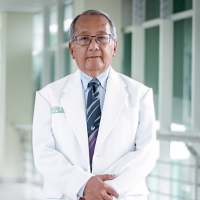
Evidence-based medicine has a long history in Indonesia. In the early 1980s, a critical mass from Gadjah Mada University went abroad under the Rockefeller Foundation’s scholarship program to study clinical epidemiology in one of the Clinical Epidemiology Research and Training Centers (CERTC) in Canada and Australia. The newly-formed group of clinical epidemiologists was then nurtured in the International Clinical Epidemiology Network (INCLEN).
The first Clinical Epidemiology & Biostatistics Unit in Indonesia was established at Gadjah Mada University around 1984 and was responsible for actively disseminating clinical epidemiology throughout the country. Subsequently the unit became one of the regional CERTCs in South East Asia, which provided Master degree training in clinical epidemiology for clinicians from ASEAN countries and China.
A historical milestone for Cochrane in Indonesia came in 2004 with the initiation of SEA-ORCHID, a five-year collaborative project between four countries in South East Asia (Thailand, Malaysia, Philippines and Indonesia) and Australia. The project focused on improving the health of mothers and babies through increasing the capacity of researchers and clinicians to understand and use evidence synthesis. An important legacy of SEA-ORCHID has been a strong cohort of clinical and academic leaders.
The first contribution to the Cochrane Database of Systematic Reviews from Indonesia came out of the SEA-ORCHID collaboration, and was the review of Antenatal breastfeeding education for increasing breastfeeding duration by Lumbiganon P, Martis R, Laopaiboon M, Festin MR, Ho JJ, and Hakimi M published in 2011. Since then Cochrane systematic review activity has grown steadily in Indonesia. In 2014 there were four protocols and six completed reviews with authors from Indonesia. Currently around 25 Indonesian authors are contributing to over 20 protocols and reviews; hopefully many more will be published in the years to come.
I want to conclude this testimony by referring to a commentary by Richard Horton in The Lancet (Horton R. Offline: Indonesia—unravelling the mystery of a nation. Lancet 2016, 387:830). Horton questioned “Why is the Indonesian voice so badly under-represented in the global conversation about health and medical science? … The Indonesian voice in medicine and science is too quiet.” The Ministry of Research, Technology and Higher Education responded to this criticism by requiring international publications for students of graduate study programs. This has already shown encouraging results with a significant increase in international publications from Indonesia. In line with this, with dedication and commitment, medical practitioners and researchers from Indonesia can contribute more to Cochrane Reviews. Cochrane Indonesia can play an important part in this effort.
Congratulations and good luck with the launch of the Cochrane Indonesia network.
Prof. Dr. Mohammad Hakimi Sp.OG(K), PhD
Past Chair, Clinical Epidemiology & Biostatistics Unit, Universitas Gadjah Mada
